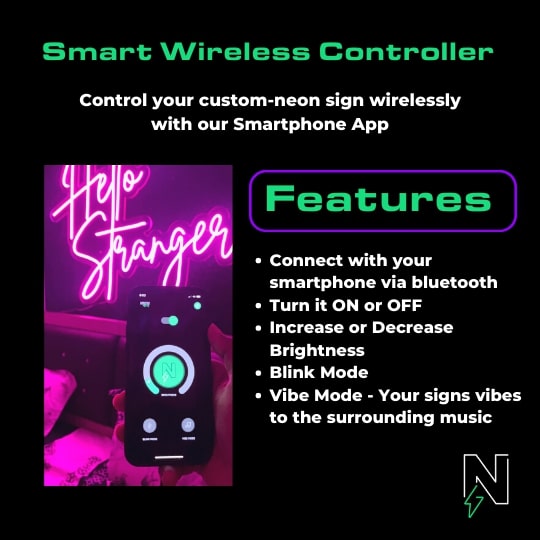Unlocking the Magic: How Do Neon Lights Change Colors?
Haven’t we all double-tapped those mesmerizing neon pics on the ‘gram, right? From the iconic city signs lighting up our feeds to the trendy symbols and taglines gracing our fave influencers’ apartments,. These colorful neon creations add a next-level vibe to any space. But have you ever wondered what goes on behind the scenes to make those neon lights change colors? We are about to ditch the filters and dive into the science behind multicolor neon lights and color changing neon signs.
Inside the neon tube: A lit AF symphony of LED lights and electricity
Imagine a sealed glass tube. Not filled with air, but with a low-pressure gas. Neon, the OG of neon lights, is popular. Still, other gasses like argon, helium, and krypton can also be used to create a wider color spectrum. Now, here’s where things get lit literally. When you hit the tube with a high voltage of electricity, think thousands of volts! Something wild happens. This voltage strips electrons from the gas atoms, creating a phenomenon called ionization.
These free-floating electrons, buzzing with energy, are like us at a concert—they wanna go back to their chill state. When they do, they release the extra energy as a tiny burst of light called a photon. That’s what makes the tube glow!
The color connection: it’s all about energy levels
But why different colors? Each gas has unique energy levels for its electrons, and the difference in these levels determines the wavelength of the light emitted, which translates to the color we see. For example, neon gas emits a classic reddish-orange glow because the energy difference between its excited and ground states corresponds to that specific wavelength of light. Similarly, argon produces a lavender hue, while krypton can generate a pale blue or white light depending on its specific makeup.
Multicolor neon lights: mixing and matching for a rainbow of vibes
Traditional neon signs used one gas for one color. But the world of colorful neon signs has leveled up, people. All thanks to Neon Attack and their exquisite products. Here’s how they achieve the mesmerizing variety of colorful neon signs.
Sometimes, the most complex and color changing neon signs use multiple neon tubes arranged close together, each filled with a different gas or phosphor combo. By controlling which tubes are lit at any given time, these signs can display a variety of colors and even create dynamic lighting effects. Imagine a whole neon light show in your room – next-level Insta story material, for sure!
The Modern Marvel and mind-blowing, color-changing neon lights
Technology has taken neon lights to the next level. Today, many color changing neon lights utilize electronic controls that allow you to adjust the displayed color with a remote or even program them for custom lighting sequences. Here are some of the ways these signs work:
- Electronic Dimmers: These devices control the current flowing through the neon tubes, allowing for variations in brightness and even a subtle shift in color. Think of going from chill to party mode with a single switch!
- Solid-State Relays (SSRS): These electronic switches control which neon tubes are activated at any given time, allowing for a selection of pre-programmed colors or even the creation of custom color patterns. Imagine having your neon sign match your outfit—the possibilities are endless!
- Digital Control Systems: Advanced neon signs may incorporate microprocessors and software for complex color programming and even integration with music or other external stimuli. These signs can create dazzling light shows and truly unlock the magic of neon lighting.









